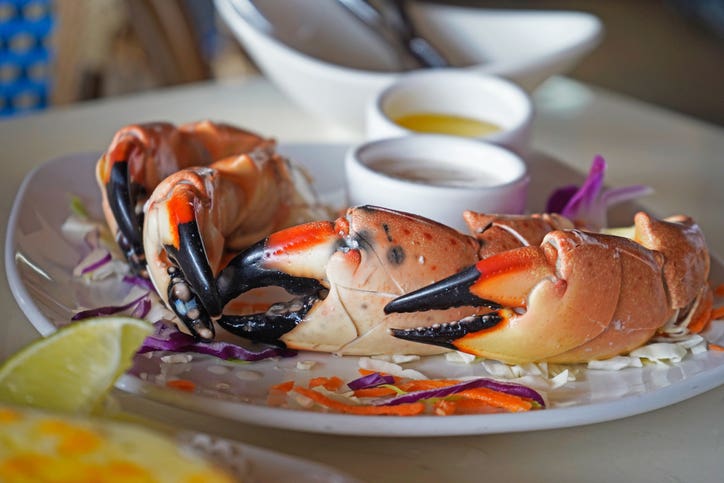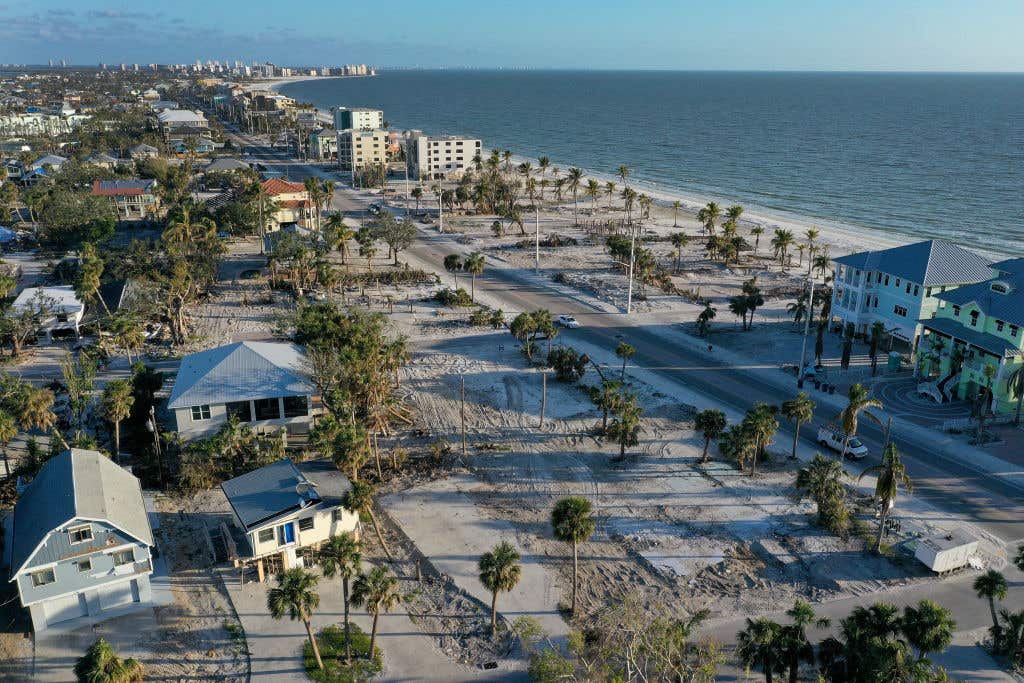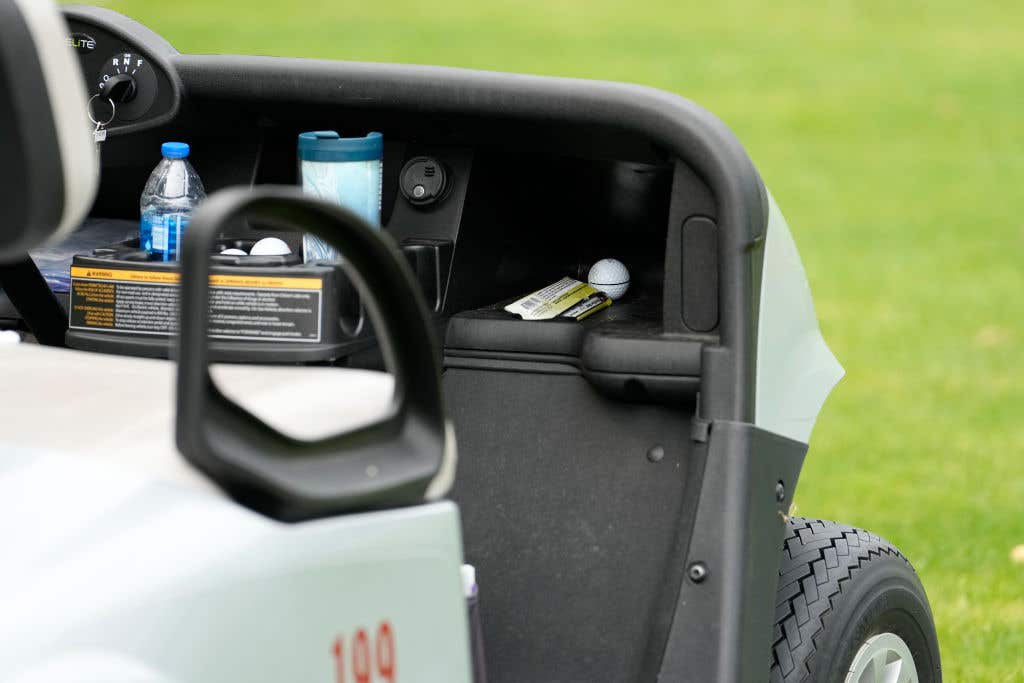
On the plate in the restaurant
Getty ImagesOne of my favorite Southwest Florida specialties is back on the menu. The recreational and commercial stone crab harvest seasons start Oct. 15 and will remain open through May 1, closing May 2. The minimum claw size limit is 2 7/8 inches.
As a reminder, an unobstructed escape ring measuring 2 3/16 inches in diameter must be located within a vertical exterior trap wall for all recreational and commercial plastic or wood stone crab traps.
 FWC
FWCStone Crab Recreational Trap Registration
Recreational harvesters who are age 16 and older (including those normally exempt from needing a license) are required to complete an online, no-cost recreational trap registration each year. To register, visit GoOutdoorsFlorida.com, sign in, click the “Click here to get a License!” tile, scroll down to the “Saltwater Fishing” section, and select “Recreational Stone Crab Trap Registration.”
Upon completion, each person will receive unique trap registration numbers that must be included on each trap along with the owner’s full name and address. This information must be legible and must be permanently attached to each trap.
 FWC
FWCOther Tips and Regulations
Care should be taken when removing the claws so as to not permanently injure the crab.
Claws may not be taken from egg-bearing crabs. Stone crabs may not be harvested with any device that can puncture, crush or injure a crab’s body. Examples of devices that can cause this kind of damage include spears and hooks.
Recreational harvesters may take a daily bag limit of 1 gallon of claws per person or 2 gallons per vessel, whichever is less, and may use up to five stone crab traps per person.
Traps that are not being fished should be removed from the water to avoid ghost fishing, a process in which marine species get caught in the trap for extended periods of time and are not harvested.
Regulations are the same in state and federal waters. For more information, go online to MyFWC.com/Marine, click “Recreational Regulations,” select “Crabs, Lobster and other Shellfish,” then select “Stone Crab.”
In additional outdoor news, Florida is predicted to have a colder winter than normal.





